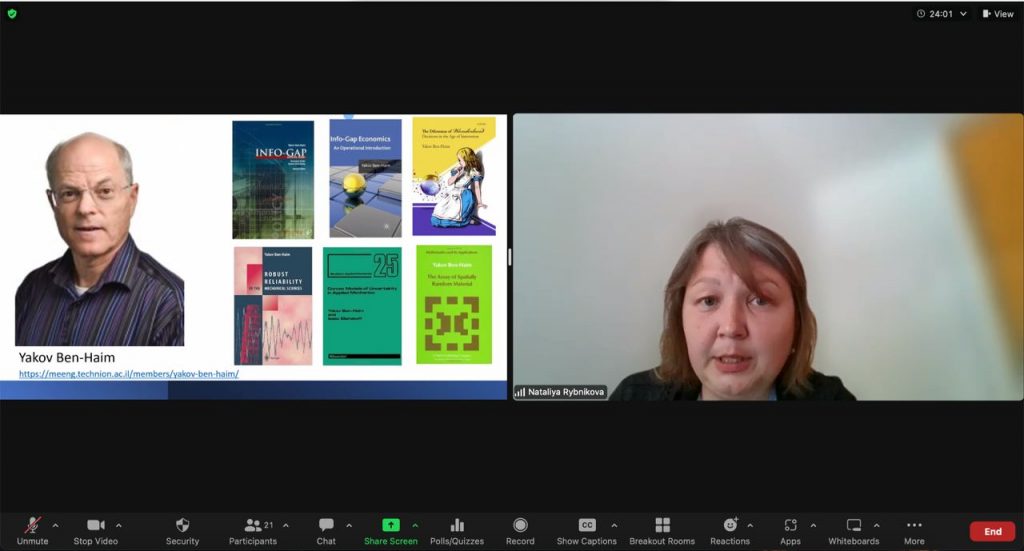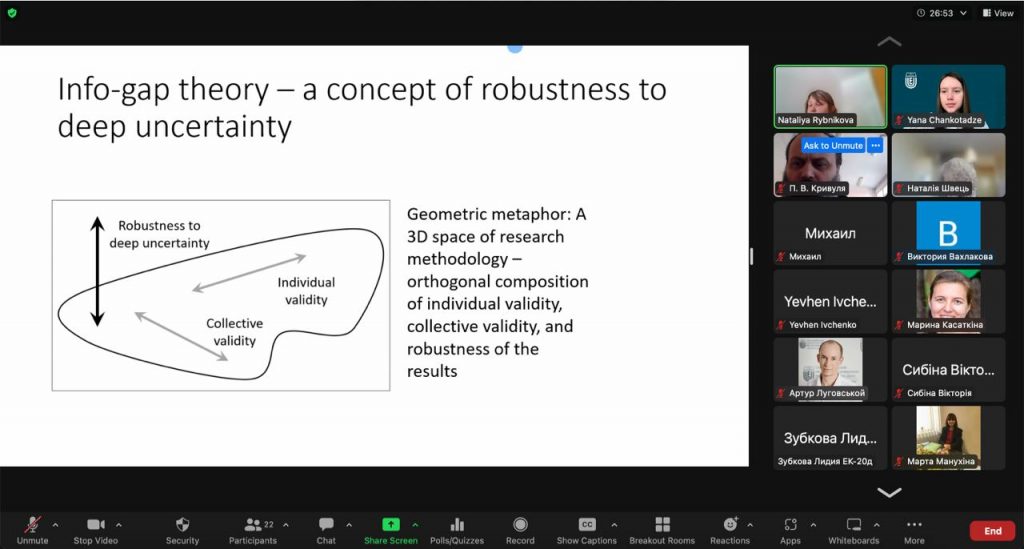Volodymyr Dahl East Ukrainian National University faculty and students of the Department of Economics and Entrepreneurship met with Nataliia Rybnikova, a doctoral candidate, researcher and lecturer at the Department of Geography and Environmental Management at the University of Haifa (Israel), a doctoral candidate at the University of Leicester (UK), and a researcher at the Faculty of Architecture and Urban Planning at the Technion Institute of Technology in Israel.
Nataliia Rybnikova introduced the participants to the Info-gap theory and demonstrated examples of its application.

“This theory was developed by Yakov Ben-Khaim, a professor at the Technion, as a theory for decision-making under uncertainty, but this theory has many other applications. In my opinion, every quantitative question we study has several types of uncertainty. The first type of uncertainty is related to how we measure or what indicators we use to study a particular phenomenon of reality, that is, how representative and relevant our indicators are,” the speaker noted.
The second type of uncertainty, according to the researcher, is related to which models and methods are chosen to study and assess cause and effect relationships.

And the next type of uncertainty is precisely the type that Info-gap theory deals with: the extent to which the results we have obtained are robust: applicable or suitable for other general populations. That is, the information gap theory deals with how applicable the research results are to another general population. Nataliia Rybnikova demonstrated the work of the Israeli-French sociological project, which aims to study the impact of lockdowns during the Covid-19 pandemic on the mental state of people from different social groups.
Participants were given the opportunity to ask questions, in particular regarding the application of the information gap theory in other areas of research. As a result of the event, scientists and higher education students became interested in the relevant theory and requested the book “Info-Gap Economics” by Yakov Ben-Khaim to use the methodology for writing qualification papers.

